Plenary Speakers
Title: Nanoengineered Materials and Thermal Engineering for Advanced Energy and Water Technologies
Abstract: Nanoengineered materials have exciting, untapped potential to improve energy and water technologies. In this talk, I provide a few examples of how we leverage nanoscale manipulation capabilities to develop advanced thermal management, solar thermal energy conversion and water harvesting devices. First, I discuss our recent work that harnesses novel surface designs to control and manipulate wettability and liquid-vapor phase-change processes. We demonstrated high flux evaporation from ultra-thin nanoporous membranes and nanostructured surfaces that can repel liquids even during condensation. Next, I discuss how nanoengineered materials can also be used to increase the efficiency of solar thermal devices. Specifically, I share our work on nanophotonic solar thermophotovoltaics and optically transparent thermally insulating aerogel solar receivers. Finally, I present a water harvesting device that leverages the unique properties of metal organic frameworks and other adsorbents to address water scarcity challenges in arid climates.
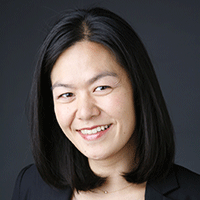
Biography: Evelyn N. Wang is the Gail E. Kendall Professor and Department Head in the Mechanical Engineering Department at MIT. She received her BS from MIT, and MS and PhD from Stanford University in Mechanical Engineering. From 2006-2007, she was a postdoctoral researcher at Bell Laboratories. Her research interests include fundamental studies of micro/nanoscale heat and mass transport and the development of efficient thermal management, solar thermal energy conversion, and water harvesting systems. Her work has been honored with awards including 2008 DARPA Young Faculty Award, the 2011 Air Force Office of Scientific Research Young Investigator Award, the 2012 Office of Naval Research Young Investigator Award, the 2012 ASME Bergles-Rohsenow Young Investigator Award, the 2016 ASME EPPD Women Engineer Award, and the 2017 ASME Gustus L. Larson Award. She was recognized as one of Foreign Policy’s Global Re-Thinkers in 2017. She is an ASME Fellow.
Title: Can Infrared Imaging Improve Breast Cancer Detection?
– An RIT-RGH initiative using a novel, computer-driven, patient-specific approach
Abstract:
Breast cancer is the second most commonly diagnosed form of cancer with an estimated 268,600 new invasive breast cases diagnosed in 2019 in the US. Early detection is the single most important factor in survival rate, approaching that of normal population if detected when the tumor is smaller than three-quarters of an inch in size. Breast cancer screening therefore plays a significant role in early detection and better prognosis. The presentation will provide a medical insight into the different screening modalities and the treatment options for women diagnosed of breast cancer at various stages. Details of an RIT-RGH initiative to incorporate infrared imaging as an adjunct screening modality will be presented. The role of computer modeling and numerical simulation in making the infrared imaging take a whole new perspective will be presented.
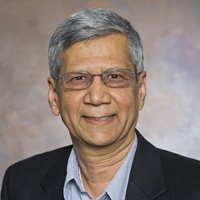 Dr. Satish Kandlikar
Dr. Satish Kandlikar
Rochester Institute of Technology, Rochester, NY
Bio: Dr. Satish Kandlikar is Gleason Professor of Mechanical Engineering at Rochester Institute of Technology, where he is working for forty years. He has conducted innovative research in the areas of pool and flow boiling, microchannel single and two-phase flows, and simulation of thermal and interfacial transport processes. He has been working on breast cancer using infrared imaging with a team of dedicated medical clinicians and graduate students for past five years.
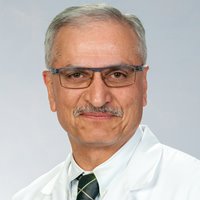 Dr. Pradyumna Phatak
Dr. Pradyumna Phatak
Rochester General Hospital, Rochester, NY
Bio: Dr. Pradyumna Phatak is the Chief of Medical Oncology and Hematology at the Rochester General Hospital where he has been for over three decades. Dr. Phatak is an experienced clinician, administrator and researcher. He leads a large cancer center with numerous clinical trials, certified by the American College of Surgeons as a teaching hospital cancer program. Dr. Phatak has been involved in this project from the inception; his long association with Dr. Kandlikar has fostered a collaborative working relationship with the medical and engineering groups that must work synergistically to make this project a success.
 Dr. Donnette Dabydeen
Dr. Donnette Dabydeen
Rochester General Hospital, Rochester, NY
Bio: Dr. Donnette Dabydeen is an interventional and diagnostic radiologist at the Rochester General Hospital. Dr. Dabydeen has demonstrated a commitment to research with experience and research fellowships at Harvard Medical School, the National Cancer Institute, and the Dana Farber Cancer Institute. Some past research projects involve the Angiopoietin family of growth factors and their role in tumor development. With various clinical and research experience, she brings an integrated perspective to the project.
 Dr. Lori Medeiros
Dr. Lori Medeiros
Rochester General Hospital, Rochester, NY
Bio: Dr. Lori Medeiros currently serves as the Executive Director of the RRHS breast center which is a NQMBC certified breast center of excellence. The center cares for roughly 800 new breast cancer patients a year and is a multidisciplinary center of excellence that provides the full spectrum of care from diagnosis through survivorship. She has been involved with the breast cancer project from its inception and provides valuable guidance and a clinical perspective.
 Dr. Jose Luis Gonzalez-Hernandez
Dr. Jose Luis Gonzalez-Hernandez
Rochester Institute of Technology, Rochester, NY
Bio: Dr. Jose Luis Gonzalez-Hernandez obtained his doctoral degree from the Rochester Institute of Technology, where he worked under the guidance of Dr. Kandlikar. His areas of expertise are heat management of electronics, optimization and heat transfer in biological systems. He developed a method to detect and localize tumors within the breasts using infrared images and advanced numerical simulations. Currently, he works as an Application Engineer at ANSYS, Inc, where he conducts system level simulations.
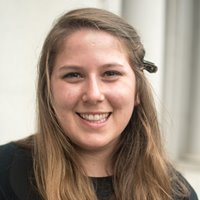 Alyssa Owens
Alyssa Owens
Rochester Institute of Technology, Rochester, NY
Bio: Alyssa Owens is a doctoral candidate at the Rochester Institute of Technology under the guidance and involvement of Dr. Satish Kandlikar in the Thermal Analysis, Micrfloudics and Fuel Cell Lab. She received her BS and MS in mechanical engineering at RIT with a focus in flow boiling applications. During her PhD, she joined the breast cancer project and has been focusing on clinical screening and thermal simulation
Title: Evolutionary Design with Freedom
Abstract: The evolution of volumetric cooling or heating is pointing toward greater heat transfer density, multiple scales and smaller dimensions. The progress is incremental and with sudden step changes upward in performance due to dramatic changes in flow configuration. All this is predictable. The lecture traces the modern evolution of flow systems that morph because of freedom toward greater flow access, in accord with the constructal law. Featured are channel spacings, vascular (tree-shaped) flow channels, channel lengths that match their flow entrance lengths, and the time arrow of step changes in configuration, from natural convection to forced convection and conduction cooling. The doctrine of evolutionary (constructal) design teaches how to predict evolution in general, and how to fast-forward technology evolution. Freedom is good for performance.
The lecture is based on the books:
THE PHYSICS OF LIFE: The Evolution of Everything (St. Martin’s Press, 2016)
DESIGN IN NATURE: How the Constructal Law Governs Evolution in Biology, Physics, Technology and Social Organization (Doubleday, 2012)
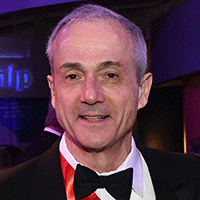
Biography: Adrian Bejan received the Benjamin Franklin Medal (2018) and the Humboldt Research Award (2019) for thermodynamics and the constructal law of natural design and its evolution in nature, engineering, science and social systems. His degrees are from the Massachusetts Institute of Technology (B.S.1971, M.S.1972, Ph.D.1975). He has authored over 30 books and 650 peer-refereed journal articles, and has been awarded 18 honorary doctorates from universities in 11 countries, from France to Azerbaijan, and from Brazil to South Africa. His new book is FREEDOM AND EVOLUTION: Hierarchy in Nature, Society and Science (Springer 2020).
Keynote Speakers
| Speaker Name |
Affiliation |
Presentation Title |
| Nenad Miljkovic |
University of Illinois |
Towards Durable Omniphobicity |
| Gherhardt Ribatski |
University of São Paulo, Brazil |
Thermohydraulic Performance of a Polymer-Matrix Composite Heat Sink Based on Convective Boiling in Microchannels |
| Erik Kjeang |
Simon FraserUniversity |
Microfluidic Fuel Cells and Batteries |
| Svetlana Boriskina |
Massachusetts Instute of Technology |
Meso-scale fabric engineering for passive cooling via conduction, radiation, and evaporation |
| Konrad Rykaczewski |
Arizona State University |
Fundamentals and Applications of Soft Heat Exchangers |
| Xiangchun Xuan |
Clemson University |
Electrokinetic Phenomena in Non-Newtonian Microfluidics |
| Saeed Moghaddam |
University of Florida |
Deciphering the Physics of Critical Heat Flux (CHF) – Towards a Universal Model |
| Jonathan Borenko |
Virginia Polytechnic Institute |
Bridging the Gap: From Jumping Droplets to Jumping Frost |
| Xianming Simon Dai |
University of Texas at Dallas |
Bioinspired Surfaces for Sustainable Water Harvesting |
| Kevin Nolan |
University College Dublin |
Exploring Viscoelastic and Inertioelastic Mixing in Serpentine Microchannels |
| Krishna Kota |
New Mexico State University |
Addressing Fundamental Heat Transfer Challenges Using Novel Micro-Manufactured Surfaces |
| Matteo Bucci |
Massachusetts Instute of Technology |
The Percolative Scale-Free Nature of the Boiling Crisis |
| Vaibav Badahur |
University of Texas at Austin |
Wettability-Based Enhancement of Phase Change Phenomena: Applications in Energy, Water and Environmental Protection |
| Peter Stefan |
Technical University Darmstadt |
Evaporative heat transfer phenomena during the dewetting process of a liquid at a superheated wall |
| Sheila Edelatpour |
University of Maine |
Engineering the Spectrum of Near-Field Thermal Radiation |